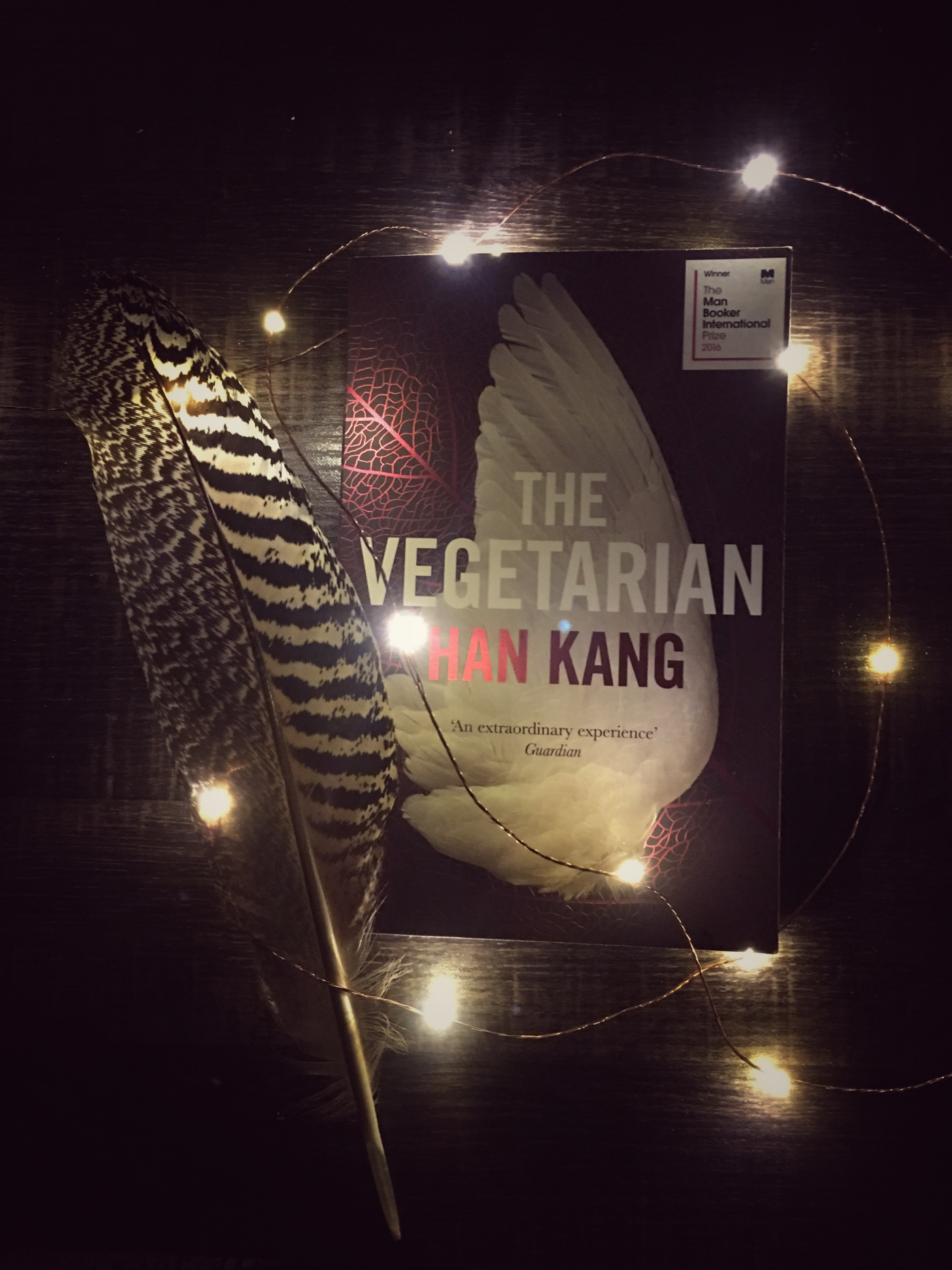A woman has a grotesque dream and turns into a vegetarian when she wakes up.
In South Korea where they love their meat, this decision turns her own husband and family against her. But things turn weirder when she does not stop at abstention from meat. She starts fantasizing herself as a plant and stops eating food altogether.
The Vegetarian is a quick read at 183 pages. It is told in three distinctive segments in the voices of the people who were most affected by her sudden repulsion to meat, but never in the voice of the woman herself. It was initially published as three short novellas in South Korea, before being translated into English by the talented Deborah Smith.
The first segment named “The Vegetarian” is narrated by Yeong-hye’s indifferent and very average husband who looks at her suddenly as an annoyance and mentally unstable person. This segment sets the premise of the story very well beginning with her dreams and ending with her family forcing her to eat meat, which she protests against by cutting her own wrists. There is an incident narrated by her, a childhood episode when her father kills the dog who bites her by running it behind his motorcycle until the dog dies of exhaustion and heart failure. That night, as a ritual they all sit down to eat the dog’s meat. Little Yeong-hye eats the meat too, but she is scarred forever as she imagines the dog’s eyes watching her from the soup. I think this incident triggered the accumulated guilt of all mankind to drive Yeong-hye towards her dreams.
The second segment named “The Mongolian Mark” is narrated by her artistic brother-in-law who looks at her as an enigmatic piece that he wants to capture in the form of art. This part of the story suddenly takes the focus away from the issues of animal killing and, shows Yeong-hye as a woman who is used to living independently, naked in her open-door flat because plants don’t wear clothes. She is besotted when she is painted with flowers by her brother-in-law and likes to claim the independence of choosing who she mates with. In this case, she wants to have sex with another person who is painted with flowers.
The third and the most sympathetic segment named “The Flaming Trees” is narrated by her sister who suddenly finds her world upside-down. She can not understand her husband and her sister, and yet she is sympathetic to the workings of their mind. This part shifts the gear back to the vegetarian plight of Yeong-hye and suddenly becomes incongruous to the entire story. Her sister, a responsible businesswoman, and mother, finds herself struggling to accept the choices of the dying woman who refuses to eat and believes to be metamorphosing into a plant. “I am no longer an animal,” is the last thing she says to her sister before turning mute like the plants.
I found the story dwindling of its mystery towards the end. What feels like a soul-searching story of a woman who understands vegetarianism at the start turns into another oriental story of a schizophrenic patient in the end. The ending even has an eerie resemblance to “Norwegian Wood” by Haruki Murakami, where another psychotic girl lives in a trance of suicidal haze. The singular dilemma of the sister that redeems the existence of the book for me was the question she faces,
“Should we allow a human being the right to their body? What if they are clearly willing to die for whatever reasons they have. Should we allow them to die or force our own expectations of normalcy on them?”
The options are bleak when the human being in question is someone you love and grew up with but is now clearly incomprehensible.
Am I the only one who felt slightly disappointed by “The Vegetarian?” Or did you feel the same? Let me know your feelings on this book. I would like to discuss it.
A quote to ponder on-
“I ate too much meat. The lives of the animals I ate have all lodged there. Blood and flesh, all those butchered bodies are scattered in every nook and cranny, and though the physical remnants were excreted, their lives still stick stubbornly to my insides.”

Leave a Reply